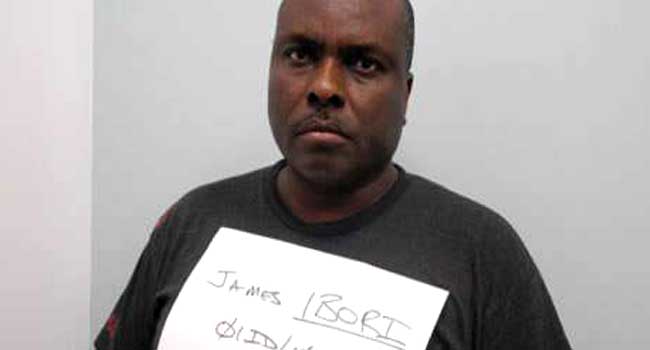CHANNELS TV
A former governor of Delta State, Mr James Ibori, has been released from a prison in the United Kingdom.
He was released on Wednesday afternoon upon a court order. The former governor’s release was confirmed to Channels Television by his spokesman, Mr Tony Eluemunor.
The judge, Mrs Juliet May, at about 12:20 p.m. ordered the immediate release of Mr Ibori, a judgement Ibori’s spokesman described as a major victory against the British Home Office, at the Royal Court of Justice, Queens Court 1, London.
Counsels to the Home Office wanted Mr Ibori to remain in detention after he had served his jail term.
Request For Further Detention
A statement by Mr Eluemunor read: “In a curious move, the British Home Office, instead of releasing Ibori on December 20, informed him that he would be detained on the grounds that his confiscation hearing had not been concluded.
“So, in court, Ibori’s lawyers exposed the injustice in the indefinite detention the Home Office had planned for Ibori. They told the Judge that there were no grounds in law under which Ibori could be detained and that his detention for one day by the Home office was unlawful”.

He said the move triggered a high drama in the British High Court, as senior lawyers for the UK’s Home Office failed in their last minute bid to prevent Ibori’s release.
According to him, the apparent decision to block Ibori’s release and detain him appeared to have come from the highest echelons of the UK Government – the Home Secretary whom he claimed was accused in Wednesday’s hearing of acting unlawfully and misusing her powers.
The Crown Prosecution lawyer, Sian Davies, did not object to Ibori’s release and return to Nigeria, yet at the last minute the Home Office stepped in. There is clear discord between the two arms of the British Government.
‘Politically Motivated Prosecution’
Mr Ibori’s team was led by Ian McDonald, the leading QC on immigration.
Ibro’s spokesman further said that the visibly irritated Judge, who could not understand the Home Secretary’s position, was critical of the move to detain Ibori any further.
“Justice May rejected the Home Secretary’s requests for conditions to be imposed and ordered Ibori’s immediate release,” the statement further read.
According to Mr Eluemunor, Mr Ibori and others have long maintained that their prosecution was politically motivated and funded by the UK’s Department for International Development, DFID, whose senior employee was also the jury foreperson in one of the earlier trials.
He said that the Ibori case has been plagued with British police corruption, exceptional prosecutorial misconduct and fundamental non-disclosure, with a multitude of appeals launched or in the process of being launched.
Celebration In His Hometown
Channels Television’s correspondent in Delta State says there is celebration in his hometown, Oghara, as a result of his release.
Mr Ibori was sentenced by a UK court to prison for 13 years and served out his term in the midnight of Tuesday.
He pleaded guilty to 10 charges of fraud and money-laundering in February 2012 and is the most prominent Nigerian politician to be successfully prosecuted for corruption.
The former governor’s case was heard in London after prosecutors argued that, although much of the activity in question took place in Nigeria, some money did pass through Britain and British banks.
During his trial, a London court heard the stolen fortune was used to buy six foreign property and a fleet of cars, although the judge said the total amount stolen may in fact be “in excess of 200 million pounds”.
The biggest single fraud involved misappropriating $37 million in fees when Mr Ibori’s Delta State sold its stake in the Nigerian mobile telecoms company V Mobile.
The Ibori case was heralded as a major success for London’s police, with Britain long seen as a destination of choice for corrupt Nigerian politicians to spend their ill-gotten gains.
There is wide speculations that Mr Ibori, who was elected governor of Delta in 1999 during Nigeria’s transition from military to civil rule, could still play a prominent role in Nigerian public life on his release.
He is out of prison after three and half years of his sentencing, having served a year while trial was ongoing, a year beforehand awaiting trial in London and a year in Dubai from where he was extradited to Britain.
No comments:
Post a Comment